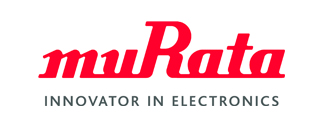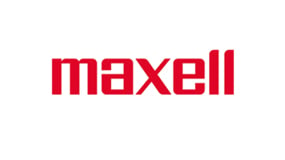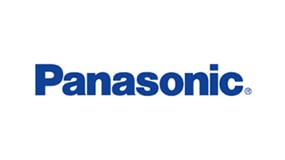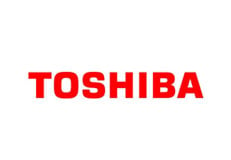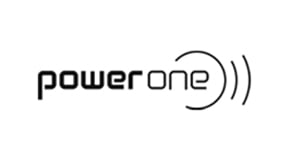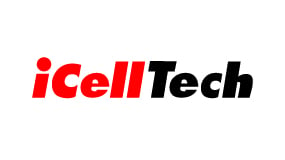If you ask people for their number one concern about making the jump to an electric vehicle, driving range will pretty much always be the answer. No matter how many press releases automakers send out touting incremental improvements, people still worry about being left stranded. The reason is simple: even with Level 2 equipment, it still takes several hours to charge up an EV, and people know they don’t have that kind of time. Even a DC Fast Charger (if your car supports it) takes most of an hour if you want more than 80% of your range.
There are two ways that automakers can increase the range of an existing EV platform. They can put in more batteries, or they can improve the energy storage capacity of the batteries. Adding more batteries means more weight and more expense, which makes increased capacity the holy grail of EV development. That’s what researchers at the University of Waterloo in Canada have been pursuing, and one good answer may be found in lithium metal battery technology.
What is a lithium metal battery?
Lithium metal batteries are not new. You can find them at any grocery store checkout line. Typically, the difference between a lithium metal battery and a lithium-ion or lithium polymer battery is that you can recharge the ion and polymer versions, but not the lithium metal variety.
The increased storage capacity could triple EV ranges compared to existing battery tech.
Lithium is considered the best available battery anode material because it carries the highest theoretical capacity and lowest electrochemical potential of all known candidate elements. But the material has several drawbacks. Repeated charge and discharge cycles can cause microscopic structural changes that lead to internal short circuits, or merely to reduced battery life.
However, researchers at Waterloo University have made significant progress using negative electrodes made of lithium metal, and their work has the potential to dramatically increase battery storage capacity.
“This will mean cheap, safe, long-lasting batteries that give people much more range,” said Quanquan Pang, who led the research while he was a PhD candidate at Waterloo.
The increased storage capacity, which is also known as energy density, could boost EV ranges by a factor of three compared to existing battery technologies.
Overcoming safety challenges
There’s a problem with lithium batteries that stems from those internal short circuits that can develop. The batteries can explode because the lithium in them reacts to water, or to the water vapor that’s present in ordinary air. Lithium batteries are generally safe, but if a battery is damaged or has a manufacturing defect, it can explode or catch fire.
So, to make their new battery technology workable, Pang and some fellow researchers (including supervising professor of chemistry and chemical engineering Linda Nazar) had to overcome two critical safety issues.
The first danger was to minimize the risk of fires and explosions caused by those microscopic structural changes. The second challenge involved a chemical reaction that creates corrosion and limits both how well the batteries will work and how long they can last.
Waterloo’s researchers solved both problems by adding a chemical compound made of phosphorus and sulfur elements to the electrolyte liquid that carries the actual electrical charge within the batteries. The phosphorus-sulfur compound reacts with the lithium metal electrode inside the battery and creates a very thin coating over the lithium. That coating protects the lithium from exposure to water.
“We wanted a simple, scalable way to protect the lithium metal,” said Pang, now a post-doctoral fellow at the Massachusetts Institute of Technology. “With this solution, we just add the compound and it works by itself.”
Pang’s breakthrough specifically helps in the development of lithium metal battery technology for electric vehicles. The chemical compound makes batteries with greater storage capacity and therefore greater driving range possible.
Old-fashioned batteries are going away
While EVs and hybrids are the main beneficiaries of battery research, the conventional car stands to benefit from advances in battery tech, too. The old-fashioned wet cell lead-acid battery hasn’t changed much in the last 100 years, but now Mazda has partnered with ELIIY Power Company and Ube Industries to jointly develop lithium-ion batteries for use in gas-fueled automobiles. The three companies plan to work together to develop durable 12-volt lithium-ion batteries as a viable replacement for lead-acid starter batteries in motor vehicles by 2021.

The benefits of this research include reduced weight in motor vehicles and reduced lead pollution in the manufacturing and disposal process of vehicle batteries. However, Mazda and its partners still have some problems to solve, because lithium-ion starter batteries will have to work for extended periods of time in hot, dirty engine bays. The new batteries must also be able to survive collisions without causing a secondary emergency.
More battery tech on the horizon
With the lithium-ion battery market currently expected to be about $33 billion in 2019, research into improved battery and charging technology is not limited to just a few universities or corporations. Researchers at the Universities of Surrey and Bristol in the UK are working with Superdielectrics on new polymer conductor technology that has the potential for faster energy transfer and greater storage capacity in the future.
“The present work, if it can be translated into production, promises to make rapid charging possible for electric vehicles … “
“The present work, if it can be translated into production, promises to make rapid charging possible for electric vehicles, as well as offering a much-needed low-cost method of storing the transient output from renewable energy systems,” said Dr. Donald Highgate, Director of Research for Superdielectrics. “Wind, wave and solar energy is available but it is intermittent and, without storage, cannot be relied upon to meet our energy needs. This new work would transform the energy system which underpins our entire way of life – it is the necessary development before we and our children can have a genuinely sustainable, environmentally safe energy supply.”
According to New Scientist Magazine, German company BASF is also working on improved cobalt-nickel battery technology that will provide the sought-after experience of a charging station that works as quickly as a gas fill-up and which provides roughly 300 miles of range in a standard EV.
“You will be able to recharge your electric sports car in the time it takes to drink a coffee, then drive 500 kilometers before needing to top up,” the magazine reported.
When an EV requires no more investment in time and planning than a gas-powered car, and costs far less to operate, it will become a true game-changer for the automobile industry. It’s not here yet, but people all over the world are working on it and making progress.
About Us:
Microbattery.com is the leading provider when it comes to Hearing Aid Batteries, Watch Batteries, Lithium Coin Cells, Lithium Batteries, Alkaline Batteries, and Rechargeable Batteries across North & South America. We have the capability to meet the needs of all sizes of consumers, dealers, distributors and importers. For over 25 years, we have been striving to ensure high customer satisfaction and providing the best quality product possible. Ever since our online store was launched 15 years ago, we have been constantly improving & optimizing our site to provide the most enjoyable and convenient shopping experience for our valued customers.
Our online store has one of the largest selections of various batteries and battery products for all types of electronic applications on the web. Our website is very easy to navigate to help ensure customers can find exactly what they need. All of our products are conveniently organized by category. They can be easily filtered by the category drop down located at the top of every page on our website. Alternatively customers can use the Battery Finder™ located on our homepage, to quickly and simply identify the exact batteries they need. If you require any assistance in determining what products are right for you please do not hesitate to give us a call at (305)-371-9200.
At Microbattery.com, you will find one of the largest selections of batteries on the web. We have millions of cells of common batteries like CR2025, CR2032, LR44, LR41, AA, and AAA in stock at all times. We also carry a wide variety of less common batteries such as CR2477, CR2016, Rechargeable Batteries, Radio Batteries, Telephone Batteries, and Pet Batteries. Regardless of your battery needs, we have got you covered. If you require a battery that we currently do not carry, please feel free to give us a call at (305)-371-9200 to place a special order (some restrictions apply).
Our customer base currently includes tens of thousands of satisfied consumers, various private companies, (local, state, federal, international) government agencies, military, institutions, wholesalers, and chain stores. Without hassle, we will ship your products worldwide, already having done so for over eighty-five countries.
Thank you for taking the time to read this article: If you are interested in purchasing products from Microbattery.com use coupon code: Microfive : To save 5% on your entire online order!



